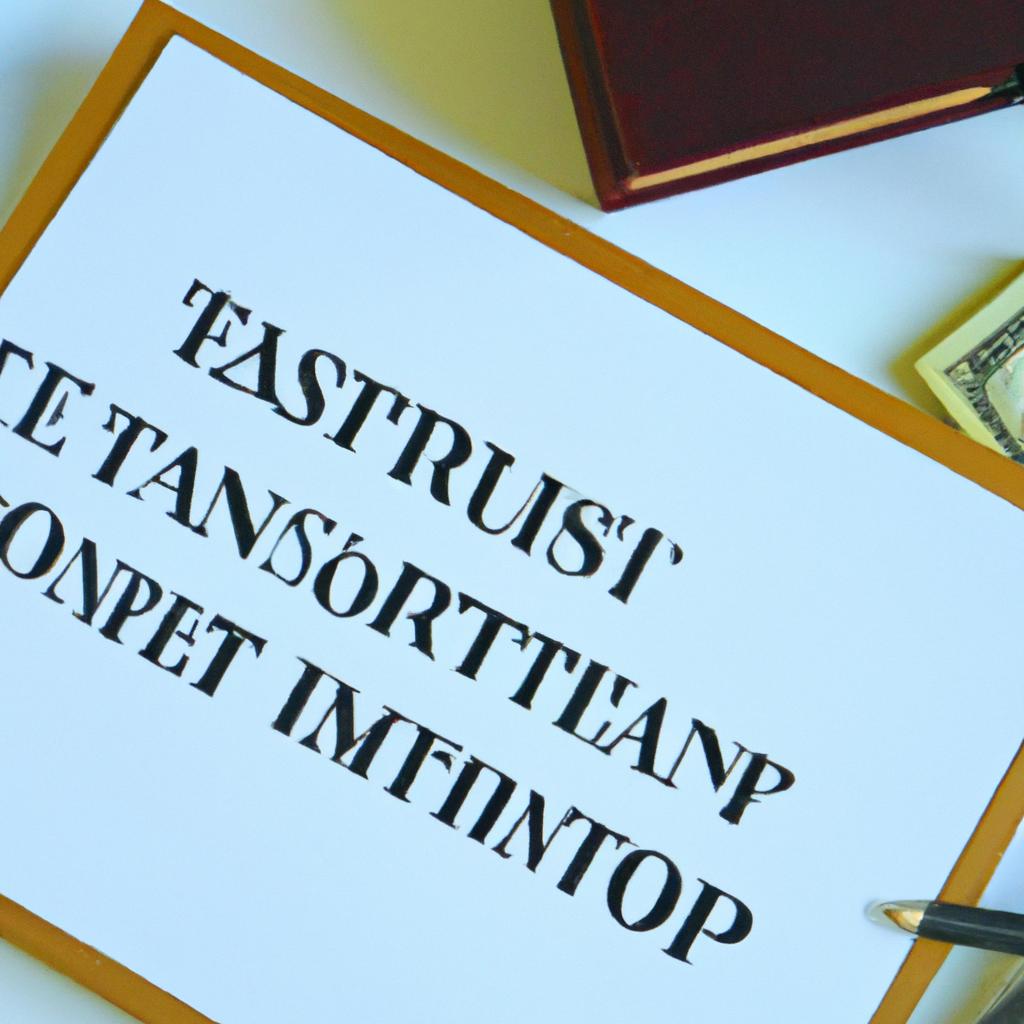In the intricate world of estate planning, the decision between an estate plan and a trust can often prove to be a daunting task. As seasoned attorneys at Morgan Legal Group, situated in the heart of New York City, we understand the gravity of this choice and strive to provide clarity on the nuances between the two options. With our expertise in areas such as probate, elder law, Wills, and trusts, we aim to guide you through the intricacies of crafting a comprehensive plan that best suits your unique circumstances. Join us as we delve into the distinctions between an estate plan and a trust, empowering you to make informed decisions tailored to safeguard your legacy.
Key Differences Between Estate Plans and Trusts
When considering estate planning options, it’s important to understand the . While both serve to distribute assets and provide for loved ones after your passing, there are distinct features that set them apart.
One major difference is that an estate plan typically consists of a will, which outlines your wishes regarding the distribution of assets, guardianship of minor children, and other important matters. On the other hand, a trust is a separate legal entity that holds assets for the benefit of beneficiaries. Trusts can offer more privacy, control, and flexibility compared to a will. Additionally, trusts can help avoid probate, which can save time and money for your heirs.

Examining the Benefits of Establishing a Trust in Your Estate Plan
When considering your estate plan, it is important to weigh the benefits of establishing a trust. While both a will and a trust are essential components of a comprehensive estate plan, a trust offers unique advantages that can provide added protection and flexibility for your assets.
Some of the key benefits of establishing a trust in your estate plan include:
- Asset Protection: Trusts can help protect your assets from creditors and potential lawsuits, ensuring that your wealth is preserved for your beneficiaries.
- Privacy: Unlike a will, which becomes a matter of public record upon your death, a trust allows for a more private transfer of assets to beneficiaries.
- Probate Avoidance: Assets held in a trust can bypass the probate process, saving time and money for your heirs.

Understanding the Role of a Trust in Asset Protection and Probate Avoidance
When it comes to protecting your assets and avoiding the probate process, understanding the role of a trust is crucial. A trust is a legal entity that holds assets on behalf of a beneficiary. By transferring your assets into a trust, you can avoid probate, ensure privacy, and protect your assets from creditors and lawsuits.
One key difference between an estate plan and a trust is that an estate plan typically consists of various legal documents, such as a will, powers of attorney, and healthcare directives, while a trust is a specific legal entity that holds assets. Creating a trust as part of your estate plan can provide added protection and flexibility for managing your assets during your lifetime and after your passing. Additionally, a trust can help you minimize estate taxes and ensure that your assets are distributed according to your wishes.

Recommendations for Incorporating Trusts into Your Comprehensive Estate Planning Strategy
Incorporating trusts into your estate planning strategy can provide numerous benefits and protections for your assets and loved ones. Trusts can help you avoid probate, minimize estate taxes, protect assets from creditors, and ensure that your assets are distributed according to your wishes. When creating a comprehensive estate plan, it is essential to consider the role that trusts can play in achieving your goals and objectives.
There are various types of trusts that can be utilized in an estate plan, including revocable living trusts, irrevocable trusts, charitable trusts, and special needs trusts. Each type of trust has its own unique set of advantages and considerations, so it is crucial to work with an experienced estate planning attorney to determine which trusts are best suited for your specific circumstances. By carefully integrating trusts into your estate plan, you can provide for your loved ones, protect your assets, and ensure that your legacy is preserved for future generations.
Q&A
Q: What is the difference between an estate plan and a trust?
A: An estate plan involves a set of legal documents that outline how you want your assets to be distributed after your death, while a trust is a legal entity that holds assets on behalf of a beneficiary.
Q: Why would someone choose to create a trust instead of just having an estate plan?
A: Creating a trust can provide more control and flexibility over how your assets are managed and distributed, as well as potentially avoiding probate and reducing estate taxes.
Q: What are some common types of trusts that people may choose to create?
A: Some common types of trusts include revocable living trusts, irrevocable trusts, charitable trusts, and special needs trusts, each serving different purposes and goals.
Q: How does a trust help provide for beneficiaries?
A: A trust allows you to specify how and when your beneficiaries will receive their inheritance, ensuring that your assets are protected and used for their intended purposes.
Q: Do I still need an estate plan if I have a trust?
A: Yes, it is important to have a comprehensive estate plan that includes a trust as well as other important legal documents such as a will, power of attorney, and healthcare directives to ensure your wishes are carried out effectively.
Key Takeaways
In conclusion, understanding the differences between an estate plan and a trust is essential when preparing for the future of your assets and loved ones. By carefully considering your unique circumstances and goals, you can make an informed decision that aligns with your wishes. Whether you opt for a comprehensive estate plan or a trust, seeking professional guidance can help ensure that your legacy is secure. Remember, the choices you make today can shape a lasting impact for generations to come. Take the time to plan wisely and rest easy knowing that your affairs are in order.

